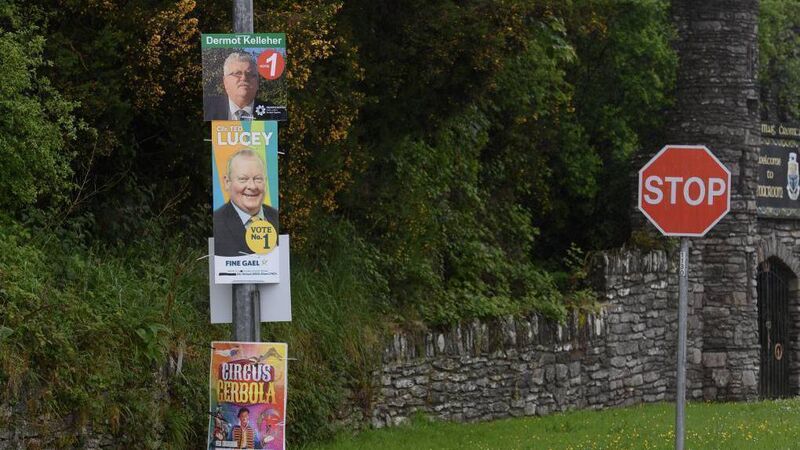We must hand over more power to councils

De-centralising power from Dublin to the regions will be good for democracy, says Senan Skalkos.
AS we approach local elections and are asked to lend our votes once again to prospective candidates so they can work for our communities, it is a good time to think about empowering voters and councils further, to meaningfully steer change from the bottom up rather than the top down.
It is no secret that many voters outside of Dublin, particularly rural voters, find the government to be too Dublin-centric. Whether or not there is too much focus on the capital, in national conversations, the Dublin perspective tends to dominate discussions on economic, environmental, housing, and social issues.
This often shifts attention to how solutions to housing, transport, and other challenges are addressed in the capital, rather than in Ireland’s other cities facing similar issues.
Debates around projects such as the Dublin MetroLink shape Ireland’s climate and transport policy, while the Cork Luas tends to primarily concern locals, despite being Ireland’s second largest city.
To promote more balanced discussions and development, one avenue that can create tangible benefits for voters and democracy is refocusing spending power away from the central government towards local authorities.
In 2023, spending by the 31 local authorities in Ireland totalled €11.8billion, of which €5.1billion was on capital projects. This only makes up 11.5% of the €102.5billion in 2023 government spending.
A 2023 report by the Congress of Local and Regional Authorities of the Council of Europe warned that Ireland lagged behind most other European countries in empowering its local councils. The Local Autonomy Index - a measure of how much power European local authorities are given by central government - found Ireland to have one of the lowest scores, only ranking just above Hungary, Russia, and Moldova, making it one of the most centralised countries in Europe.
Irish democracy works well, but can be better. Moving from a highly centralised state can help democracy progress in two main ways. The first is the most apparent: through more decentralised spending and governance, voters and councils will be empowered to focus more resources on local issues, aiding in resolving them faster. Ireland, like every country, faces nuanced regional issues, causing a diverse array of priorities.
In 2016, a Vodafone study found broadband penetration in rural Ireland was only 69%. A 2021 Eurobarometer survey showed 43% of rural residents still faced broadband issues, compared to the EU’s 26% average.
Though progress has been made this year via the National Broadband Plan, it is sobering to note it has taken eight years since the original Vodafone study and there are still concerns about rural broadband coverage.
The central government has to grapple with balancing the varying needs of voters in Cork, Greater Dublin, rural Ireland, and more when allocating intellectual and financial resources. Empowered local councils have the advantage of specialised smaller scopes, which offers a promising solution: expedited responses to pressing issues in their areas.
For instance, Cork city can devote itself to addressing housing concerns, rural Ireland can focus on broadband access, and Dublin city can combat rising crime rates - all with greater agility than the central government that is burdened with a national balancing act.
Amid growing discontent with political figures, bringing policymaking and spending decisions closer to voters is imperative. Making more decisions through local processes gives voters a greater sense of self-determination.
This is evident worldwide, from the outcomes of large-scale processes such as devolution in the UK, to smaller-scale initiatives like participatory budgeting in Paris. Like in referenda, a more grassroots, community-specific approach to democracy can reinforce voter’s ownership of the decision process, which is important in the backdrop of global scepticism towards political institutions.
Secondly, empowering local governments financially and legislatively can foster a more vibrant, competitive political environment. Looking to countries such as the U.S and UK, regional elections can attract high profile names and are often regarded with similar importance to national elections in their respective regions. The competition for positions such as Mayor of London, state congress member, and other similar roles, is in great part due to the authority and budget granted to them, facilitating significant impacts on the communities they serve.
Weak local councils can drive talented councillors to leave for roles in the Dáil, seeking the resources and authority they need to effect change.
Furthermore, limited powers granted to local governments may discourage bright leaders from participating in local government. Ambitious candidates may view national or EU elections as the only viable career paths. As a consequence, communities can potentially lose impactful candidates and be subject to less competitive local elections.
Attracting more competitive candidates to local elections through larger budgets and authority is important for accountability and innovation. Underperforming or out-of-touch councillors are more likely to face competition from more capable candidates. Even superb councillors will be further incentivised to innovate and improve their performance due to the likely entrance of other innovators vying for their seat. All of this translates to more incentives for economic and social progress.
Ireland has the ability to catch up to our European peers in local governance. By implementing rigorous independent checks for proper use of funds and an audited tendering process, greater powers can be given to counties and cities to autonomously invest in region-specific infrastructure and projects with the agility voters need.
As mentioned, local governments only spend 11.5% of the total budget - not all of this was funded by the Dáil. Starting from a low base enables meaningful resources to gradually shift to regional bodies. To best use our local councils, not all politics must be local, but more spending certainly should be.







 App?
App?




